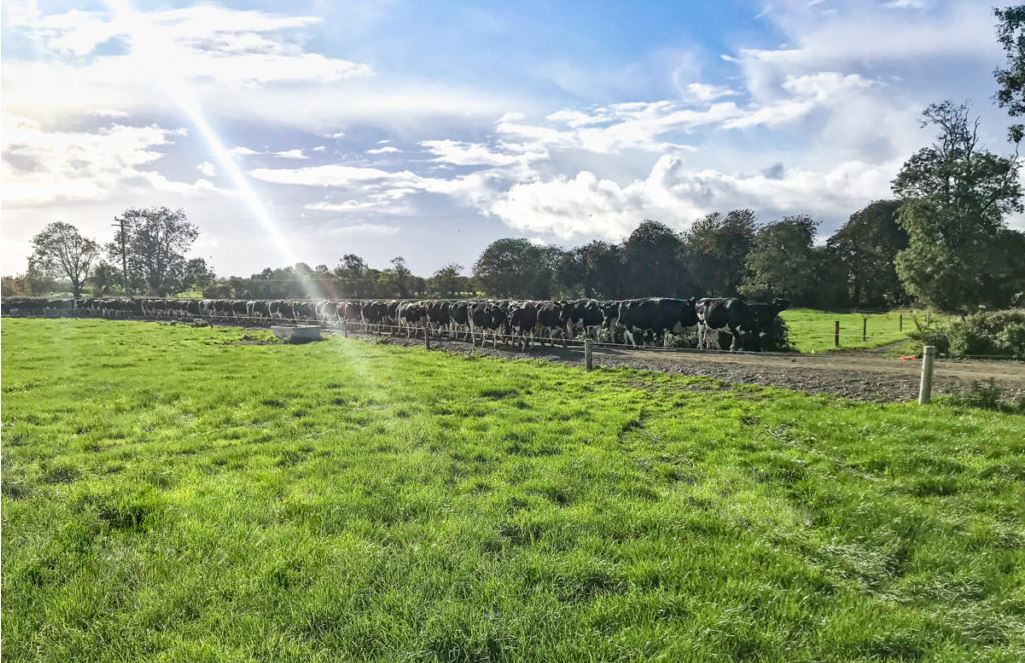Origin Green – which was launched in 2012 – is Ireland’s food and drink sustainability programme.
Commenting on the importance of the programme, Deirdre Ryan, director of the Origin Green and Quality Assurance programmes, said: “There’s mounting global and customer interest in the sustainability topic – particularly over the past 12 months.
“Our global customers are setting long-term plans to tackle sustainability issues driven by their own supply chains, and out of necessity to future-proof their own businesses, as well as the NGO sector and consumer demands.
“All of these customers are looking to their Irish food and drink suppliers to demonstrate increasing detail around sustainability performance.
“When Origin Green launched in 2012 we were probably ahead of the curve, but we really need to keep moving in this space as that appetite for more detail increases,” she explains.
Since the launch of Origin Green, the Irish food industry has made great progress towards the aim of driving sustainable food production.
“A lot of research has been done. Bord Bia carried out research in this area in 2009 and again in 2018 – across 13 markets.
“Three in five of our consumers would say that sustainably-farmed and produced food is a really important attribute when choosing beef and dairy for example.
“It’s becoming increasingly important for our markets,” she added.
At farm level, there are over 53,000 members of Bord Bia’s sustainable assurance schemes for beef, lamb, dairy, horticulture and eggs.
Over 260,000 carbon assessments have taken place on beef and dairy farms, and results indicate that their respective carbon footprints have declined.
“Reducing carbon emissions is really done through our programmes – both on-farm and at manufacturing level.
“Anything to do with the Origin Green programme is unique in that regard – it covers the entire supply chain from producers to manufacturers to retailers and food-service companies.
“On farm level, we reduce emissions through the quality assurance and sustainable assurance programmes.
“For example, in the Sustainable Beef and Lamb Assurance Scheme (SBLAS) – from farmers that joined in 2014 – there was an average reduction of 5% over five years and the Sustainable Dairy Assurance Scheme (SDAS) saw a reduction of 9% over the five-year period for farmers that joined in that time.”
At company level, there are over 320 verified members of the programme, collectively accounting for 90% of Irish food and drink exports. 11 companies participate at retail and food-service level, including four of the largest retailers representing 75% of Irish retail.
And, to date, companies have set over 2,400 sustainability targets, reaffirming the industry commitment to continuous improvement.
“In terms of the food manufacturers, there was an 11% reduction in energy efficiency for example. So overall, there are significant improvements being made and we are hoping to accelerate the pace of those improvements,” Deirdre says.
Farmers
On-farm assessments constitute a key component of the Origin Green programme.
The roll-out of sustainability assessments at farm level has been made possible by Bord Bia’s pre-existing quality assurance infrastructure, which has been in place for over 20 years.
This infrastructure sees more than 100 auditors undertake over 650 independent farm audits each week.
“The Farmer Feedback Report was introduced in November 2019. As part of that, it summarises – for farmers – the performance of the farm in terms of the carbon footprint, greenhouse gas emissions, as well as nutrient management and farm safety and so on.
“It provides practical guidance on how to be more sustainable on-farm, as well as being more efficient which should be more economical.
“Another element is the helpdesk. This helps farmers to prepare for the audit as well as helping to complete the sustainability survey,” Deirdre explains.
Manufacturers
Origin Green’s food and drink manufacturing members commit to a mandatory mix of target areas specified by the Origin Green Charter.
The mandatory areas, from which targets are set, form the basis of a business’s three-to-five year sustainability plan.
“As part of the process each company sets out targets in: raw material sourcing and the manufacturing process – that could be energy, carbon emissions or water usage; as well as social sustainability,” she highlights.
The plan is independently verified by international verification specialists, Mabbett, to ensure the targets are viable and robust. Each plan is reviewed annually and monitored for progress against the set targets.
Retailers and food-service
Similar to manufacturers, retail and food-service companies participate in Origin Green through the development and delivery of ambitious, measurable and time bound targets as part of a five-year sustainability action plan, which is independently reviewed annually.
As part of the Origin Green retail and food-service charter, participating members are asked to set targets in the following areas:
- Raw material sourcing (supplier initiatives, certifications, packaging);
- Manufacturing process, (energy, waste, water, emissions, biodiversity);
- Social sustainability (health and nutrition, employee engagement, community initiatives).
Following its launch on a pilot basis in 2016, 10 companies have become fully verified members of the Origin Green programme at retail and food-service level.
Climate Action Plan
In light of the global food industry’s growing sustainability challenges, Origin Green is constantly evolving to drive improvements by measuring what matters on an ongoing basis.
This is to ensure that sustainable food production is both viable and achievable, but – most importantly – to ensure that it makes a positive difference to the challenges outlined by the Climate Action Plan.
For its part, initiatives underway through the Sustainable Quality Assurance Schemes and the Origin Green programme are making positive progress.
From Bord Bia’s perspective, responding proactively to climate change is crucial to building Ireland’s reputation as a producer of sustainable, world-class food and drinks and winning growth on that differentiation (which has been built up over many years).
“We’ve had some great improvements to date and significant reductions – both in energy and carbon, as well as water usage. That’s significant evidence that the programme is delivering key proof points for the industry,” Deirdre concluded.




